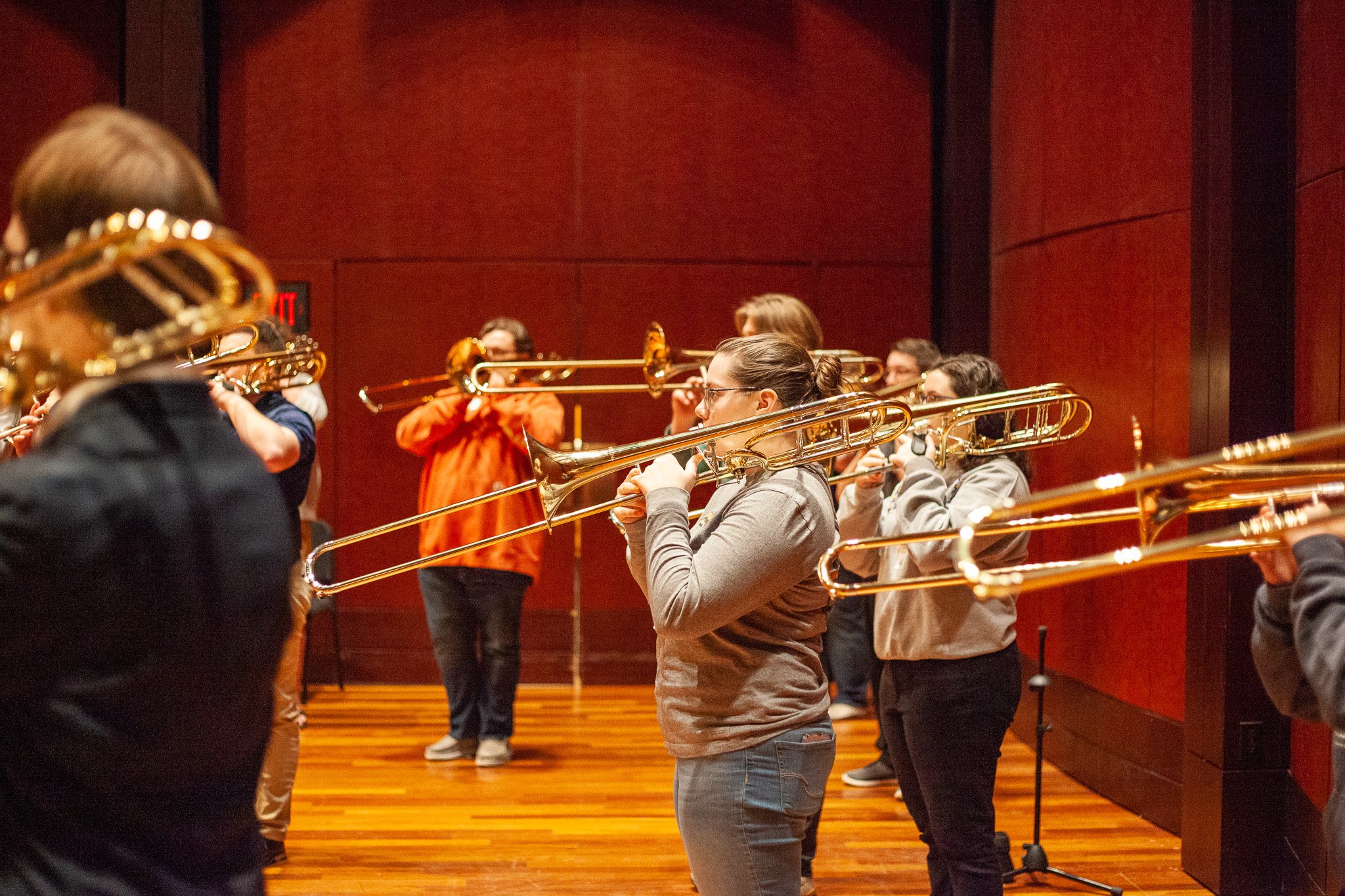Teaching Philosophy
My approach to applied teaching centers on equipping students with the skills, habits, and mindset to thrive as independent musicians. While technical development is essential, I believe lasting growth comes from nurturing a student’s ability to listen deeply, think critically, and connect with the broader musical world. My teaching encourages both individual responsibility and a sense of community, fostering an environment where students feel supported, motivated, and artistically curious.
A key influence in my pedagogy is the legacy of Bill Adams, whose emphasis on sound concept and external focus continues to shape my work. Like Adams, I guide students to focus on the music they want to create rather than the mechanics of how they play. This external focus—paired with intentional listening—helps students produce a free, resonant tone and develop a more instinctive connection to their instrument. Listening assignments are a consistent part of my curriculum, helping students internalize great playing and expand their musical vocabulary beyond the trombone.
Fundamentals are the foundation of every lesson. I tailor daily routines that emphasize ease of sound production, flexibility, articulation, range, and airflow. These routines grow with the student and prepare them for the demands of etudes, solo literature, and ensemble playing. I also incorporate jazz improvisation and transcription study to develop versatility and personal expression across styles.
Since our time together each week is limited, I make a point to build a studio culture that extends learning beyond the lesson. Through regular studio classes, peer feedback, and shared performances, students learn to communicate, collaborate, and inspire one another. The studio becomes a place where risk-taking is encouraged and artistic identity can flourish.
At its core, my teaching is about more than preparing students for performances or auditions—it's about building confident, self-motivated artists who carry their musicianship into every part of their lives. I want my students to graduate not only with strong technical skills, but also with clarity in their musical voice, a deep sense of purpose, and the ability to thrive in any musical environment they choose to enter.
